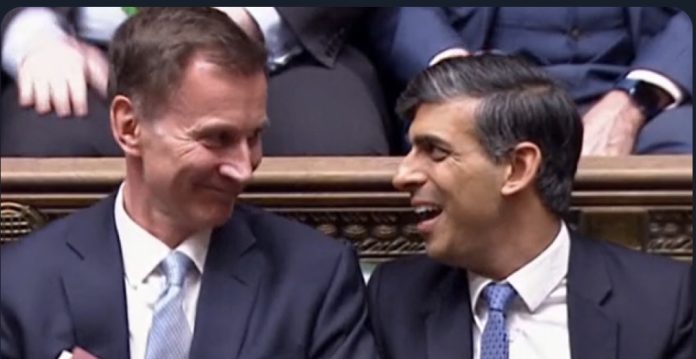“Last year nearly 4 million people in the UK experienced destitution, including 1 million children. The number of people experiencing destitution has more than doubled in the last 5 years.” said the Joseph Rowntree Foundation adding that a 2p cut in National Insurance will not help those who need it the most
Chief Executive said Paul Kissack added;
“This budget will benefit households with larger incomes, leaving the poorest in society short of the essentials when they needed supporting the most.“
The Greater Manchester Poverty Action Group said that “After months of campaigning from ourselves and partners, it is a relief to hear that the Household Support Fund (HSF) will be extended for a further six months. The fund has been an absolute lifeline for some of our most vulnerable residents.”
However they added that a six-month extension with three weeks’ notice is not enough and underlines how short-term the government’s thinking is. By now, staff delivering services funded by the HSF will be working the final weeks of their contract – if they haven’t already left.
Adrian Young, a tax partner at independent accounting and business advisory firm HURST, said:
 The real headline-grabber was the 2p reduction in the employee national insurance rate from 10 to eight per cent. This takes effect from April, and is likely to be roundly welcomed. According to Mr Hunt’s statistics, the average working person should be around £900 better off each year once this measure is combined with the 2p rate cut that was adopted in the autumn statement last year.
The real headline-grabber was the 2p reduction in the employee national insurance rate from 10 to eight per cent. This takes effect from April, and is likely to be roundly welcomed. According to Mr Hunt’s statistics, the average working person should be around £900 better off each year once this measure is combined with the 2p rate cut that was adopted in the autumn statement last year.
Understandably, Mr Hunt used this announcement to flag a path to lower taxation. He explained that the progress the government has made with economic growth and public spending restraint has allowed him to do this.
But a closer examination reveals that this reduction in national insurance is at least in part funded by stealthy increases to income tax afforded by ‘fiscal drag’.
This is what happens when tax allowances do not keep pace with inflation, meaning more and more working people are ‘dragged’ into tax.
The difficult truth for Mr Hunt is that the tax burden on individuals remains higher now than it has been in several generations.
Independent bodies estimate annual tax receipts will be up to £40bn a year higher by 2028 than would be the case had income tax allowances kept pace with inflation. The reduction in national insurance, while welcome, is unlikely to change that fact.
The Chancellor’s repeated pointing of the finger at the Labour front bench to accuse them of raising taxes was, I suspect, an attempt to deflect from this uncomfortable truth.
In the context of what is likely to be the penultimate or even final major fiscal showcase before the general election, the Chancellor’s decision to reduce national insurance rates looks like an astute political move.
It enables him on the one hand to point to eye-catching tax rate cuts while at the same time increasing the actual tax take for the Treasury. This enables him to deliver on two political promises: being seen to help with cost-of-living issues and maintaining spending on public services.
As I’ve said previously, it’s a clever sleight-of-hand.
In conclusion, the Chancellor said there is much to be positive about, and economic indicators are starting to point in the right direction.
Many people will be pleased to hear the promises in particular on additional NHS spending, and the reduction in national insurance rates.
What remains to be seen is whether these measures are enough to help improve the Conservative government’s fortunes in what will be a frenetic few months of campaigning leading up to the general election.”
Ben Harrison, Director of the Work Foundation at Lancaster University, a leading think tank for improving working lives in the UK, on the Chancellor’s Spring Budget today:
“The Chancellor set out his ambition to build a higher wage, higher skill economy and make work pay. But on his watch an extra 500,000 people fell into severely insecure work in 2023 alone – leaving 6.8 million people stuck in jobs characterised by low pay and without key employment protections.
“The Chancellor’s decision to prioritise the short-term sugar rush of a further 2p cut to National Insurance over further public service investment is ill advised. The reality is cutting NICs is likely to disproportionately benefit those on higher incomes and will do little to address the financial penalty of £3,276 per year experienced by those in insecure jobs.
“It will also do little to address the UK’s long-term sickness crisis. Since December 2019, on average nearly 500 people have become economically inactive due to ill health every day – leaving us with a near record 2.8 million people out of the labour market as a result.
“While committing to fund the NHS productivity plan is welcome, we will also need additional long-term investments in our healthcare infrastructure and action to improve the quality and security of jobs on offer if we are to see more of those people return to work and support future economic growth.”







